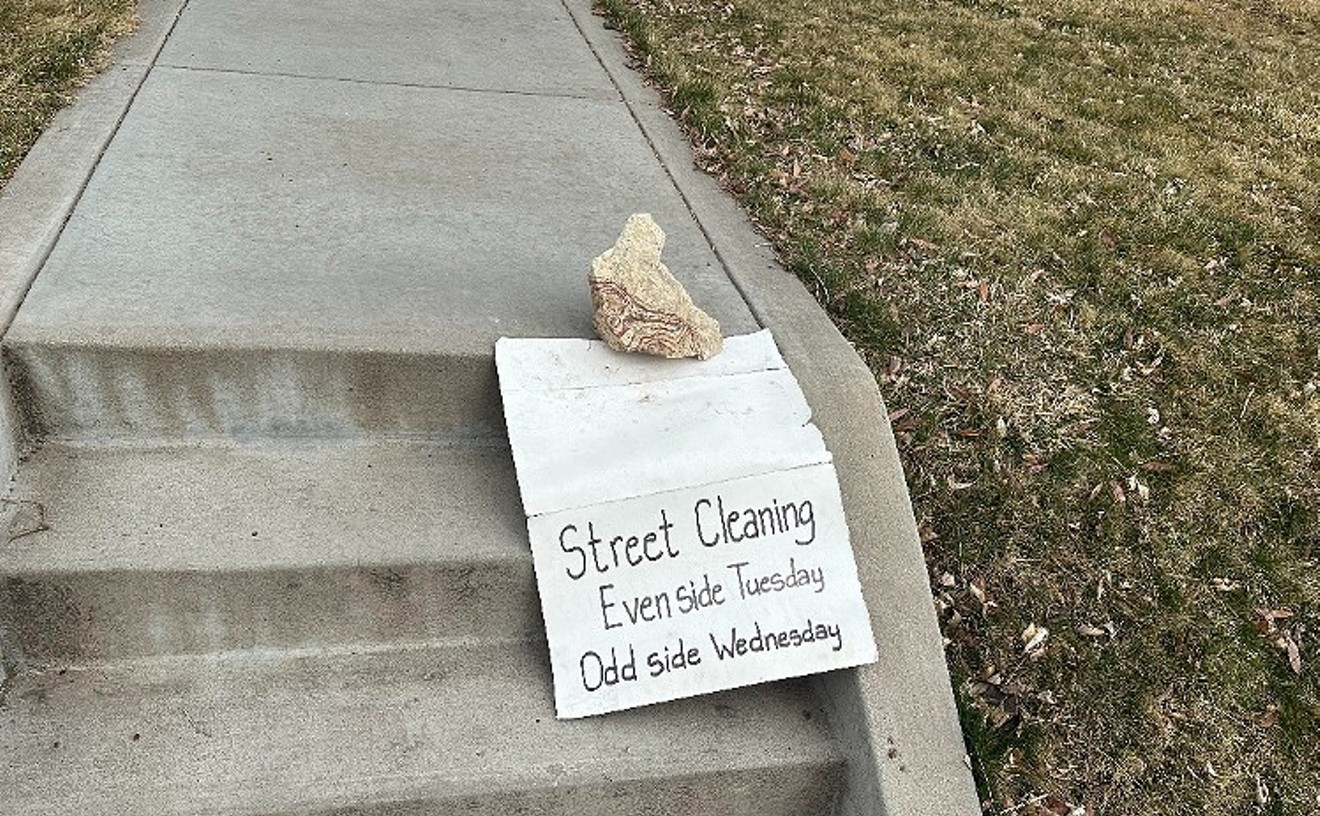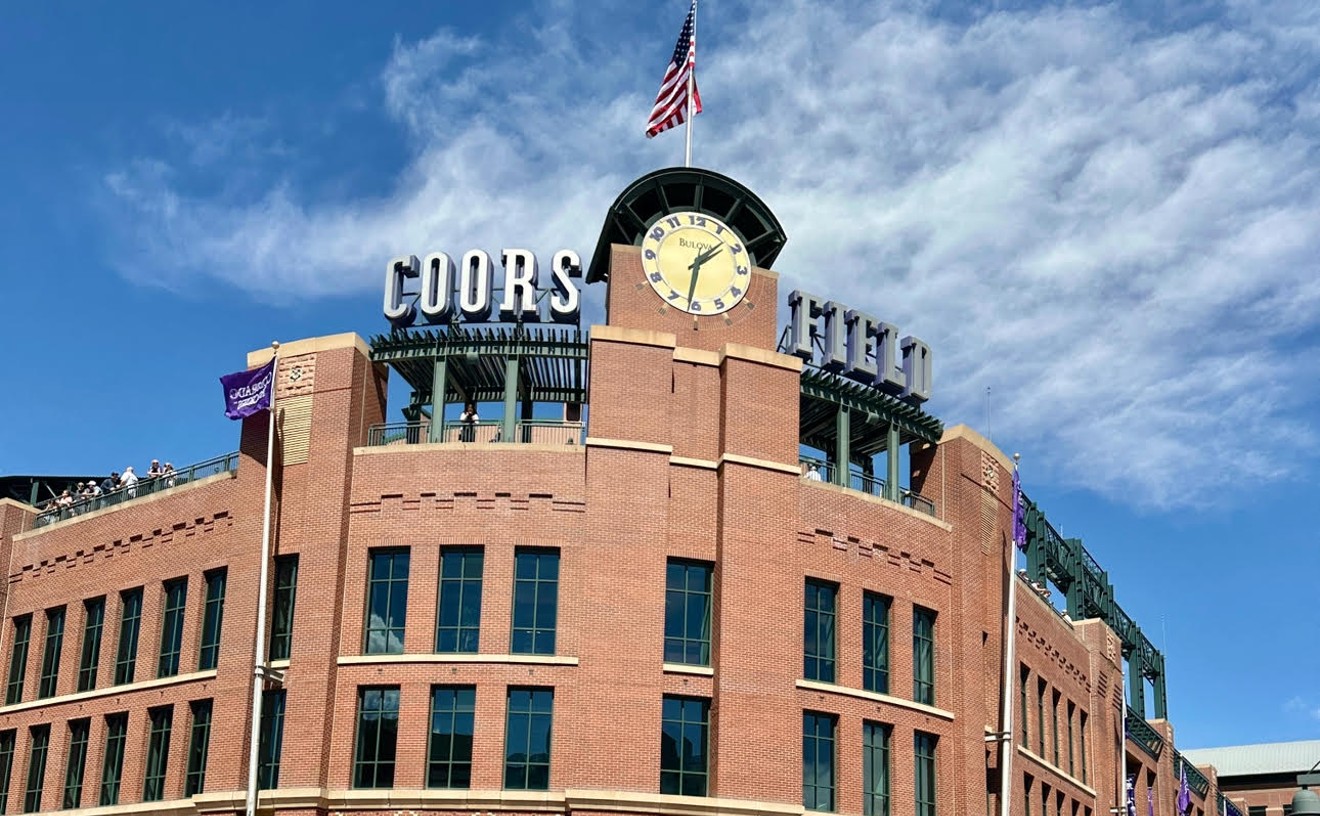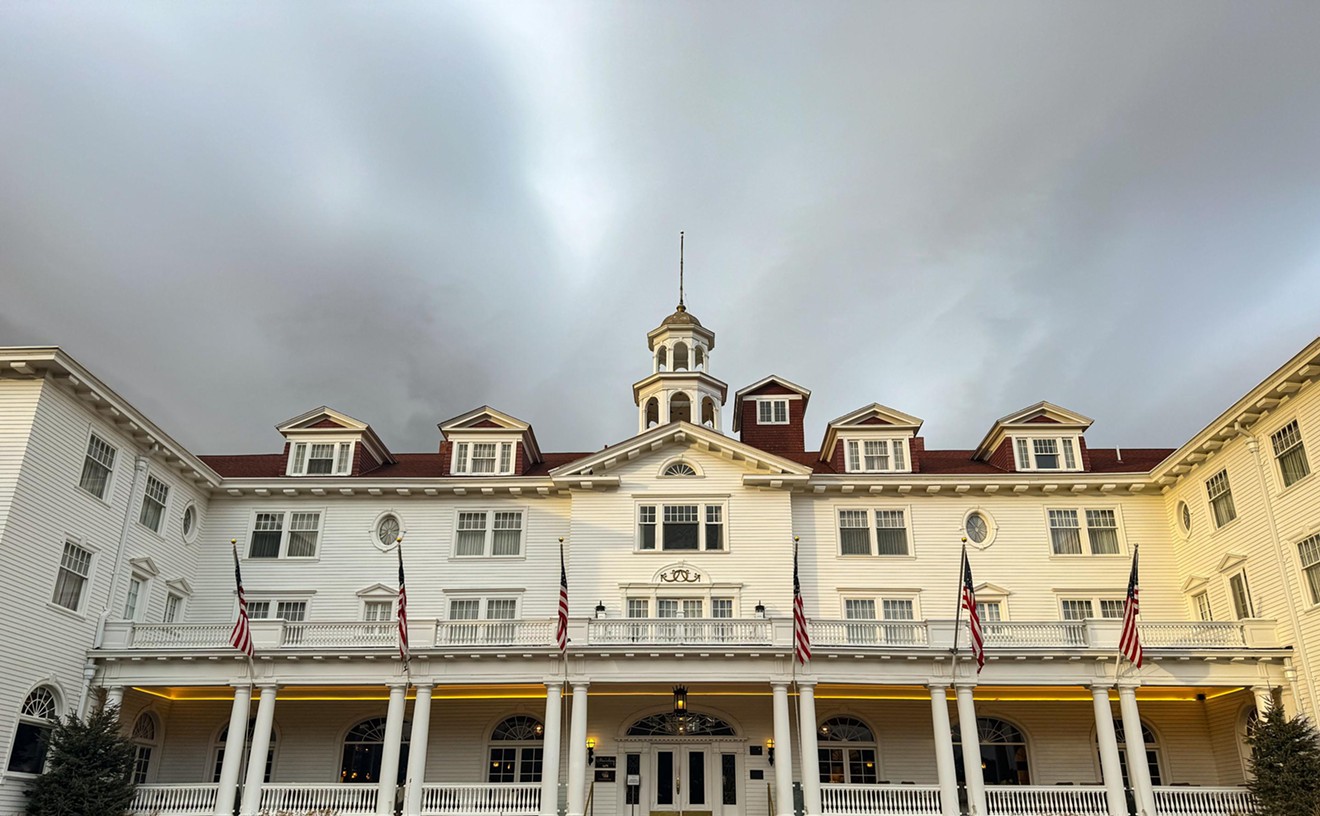The first week in October was hell on the traumatic amputation specialists at University Hospital. Within 36 hours they received three emergency cases: a detached arm and two severed legs.
On Monday, October 4, Mike Thurby of Arvada was hauling the day's last load of trash to the dump when his compactor truck got caught in an accident on I-25 near 120th Avenue. When the truck came to rest against the guardrail, Mike was fully conscious--and realized that his left leg had been severed. His buddy from work, who'd been following the truck, made a tourniquet out of his neckerchief to keep Mike from bleeding to death. Once Mike was extricated from the wreckage, the Flight for Life helicopter took him to University, where he spent the next two hours in surgery.
On Wednesday, October 6, Bill Jeracki of Conifer was trying to get in a final day of trout fishing before cold weather set in. He lost his footing in an unstable boulder field in an isolated area near St. Mary's Glacier and wound up with his left leg crushed beneath a large rock. After waiting hours for rescue and watching the weather turn cold and cloudy, he decided anything would be better than staying trapped there and began to remove the leg at the knee. He made a tourniquet out a piece of nylon rope from his tackle box and, using his fishing knife and fly-tying clamps, cut under the kneecap and through the muscles and cartilage holding the two halves of the knee joint together. Then the hard part began. Bill crawled across the boulder field and drove--in his manual-transmission truck--to the aggregation of house trailers known as Alice, a few miles back up the four-wheel-drive track. There Bill was found by a group of Good Samaritans who called 911, then transported to University by Flight for Life. The helicopter made a return trip to pick up Bill's leg. By the time it arrived at the emergency room, however, the surgeons had decided against reattachment.
That's how two healthy thirtysomething guys, out doing normal guy things, became members of a group made up almost exclusively of healthy young guys who like to do guy things: traumatic amputees. And this is the story of how they and their families have coped in the six months since the world went spinning out of control.
I'm in a unique position to know. When I'm at home, I'm Mrs. Bill Jeracki, aka Victim's Wife.
Mike Thurby went straight into the Navy after graduating from high school in Kentucky in 1979. He was stationed in San Francisco, where he learned to be a boiler technician. After a four-year hitch, he spent a year in Austin, then moved to Boulder, "just checking out college towns." He supported himself by working construction jobs and driving trucks. His supervisor on one of the jobs introduced him to Carla Gonzales, who worked in the same hair salon as the supervisor's wife. In 1988 Mike and Carla married.
Their son, Alex, was born in 1990, daughter Emily in 1992. When the kids came, Mike decided to enroll in night classes at Denver Aero Tech, completing the course to become an airplane mechanic in 1992. But he continued to work as a commercial truck driver, since the available airline jobs paid far less. The schedule was hectic, and he and his wife saw each other "in small doses," Carla recalls. Her part-time schedule at the shop was flexible; that's why she was home that Monday afternoon when Mike's supervisor called.
"It was about 3:15," she says. "All he said was that Mike had been in an accident and they'd taken him to the hospital. It was such a shock, because he'd called about two to say he was on the last run and he'd be home soon.
"I didn't know what exactly had happened, because they won't tell you anything over the phone," Carla continues. "All he said was that Mike was conscious and he'd hurt his leg."
(If she'd been watching TV, she would have known more: Not only was the accident--which tied up rush-hour traffic on southbound I-25 for quite a while--televised, but so was the fact that the driver of the truck had lost his leg.)
Carla dropped the kids at her mother's house and headed for the hospital. Because Flight for Life had transported Mike, his supervisor assumed he'd been taken to St. Anthony's, where the service is based. But when Carla got there, she learned that Mike was at University, on the other side of town. "It was a good thing my girlfriend found me at St. A's," she says, "because I wouldn't have made it if I had had to drive."
When she finally arrived at University, Carla still had no idea what had happened to Mike. And she wasn't going to find out all that soon.
"By the time I got there he was in surgery, and there weren't any doctors available to tell me what was going on," she remembers. "So I sat with the chaplain for about an hour, and he talked to me, but he couldn't tell me what was going on. I was half-hysterical; I felt like I was going to throw up. It was a really weird feeling."
When they finally came out of surgery, the doctors told Carla that Mike had lost his leg below the knee. They planned to save the knee if possible. They suggested she go home. She didn't.
In fact, Carla stayed with Mike most of the time he was in the hospital, a little over two weeks, through a recurring fever and three surgeries that required seven units of blood altogether and left him with an above-the-knee amputation.
While Carla was waiting for Mike to come out of surgery, again, I was driving around town in my then-boss's Lincoln Continental with an out-of-town photographer, scouting locations. I had the car because it was equipped with a cellular phone, in case we needed to call the office. Nobody told me what to do if the office tried to call us, which they did. After much horsing around, the photographer finally called in, and the message was relayed that I should contact University--immediately.
Like Carla said, they won't tell you anything over the phone. When I reached Dr. David Cionni, he said there had been an accident and I should come to the emergency room right away. Being a mom, I had to ask if it was one of the kids. Then I had to ask if Bill had been in a car wreck. And then I found out he was conscious and had hurt his leg. Sound familiar?
The photographer disembarked at Civic Center Park, telling me to drive carefully and not crack up the car.
It took about a decade to reach University. As I drove the wrong way into the Ambulance Only parking lot, I passed a group of reporters talking to a hospital PR person standing in front of a helicopter. I blocked the emergency entrance and went inside. A reporter was whining about deadlines to the reception clerk. I introduced myself and was immediately whisked away into a cluttered little room labeled Psychiatric Services.
There Dr. Cionni explained what had happened. I went numb--and stayed that way. He took me to the prep room, where Bill was lying on a gurney. He was a mess, full of morphine and blind as a bat without his glasses, but he was there and he was talking. He told me he loved me, that he was there because he wasn't ready to leave his family just yet, to not tell the kids too much and to not crack up the car. In an accurate understatement, I told him he might be on the news that night.
The prep nurse asked Bill if he wanted her to put his wedding ring in the bag with his wallet and other possessions. He looked at me, squeezed my hand and asked her just to tape it on his finger. It was important to him to have it when he woke up later. Then they took him, and the X-ray of his leg with the tourniquet still in place, to the operating room.
With the part of my mind that was not thoroughly stunned, I started checking off a list of priorities. I'd seen Bill. Now I needed to return the car to my office on the 16th Street Mall, then call the neighbors and ask them to take care of the kids, since it was almost time for the school bus to arrive. Then back to the hospital: A friend drove so I wouldn't crack up the car.
I'd been gone from University about ninety minutes. This time I was greeted by PR director Bobbie Barrow, who held a list of about a dozen news organizations that had requested a statement and more information, including a Reuters photographer who wanted to take a picture of Bill. Since publishing is my business, I knew they could manage without it quite nicely; his driver's license photo would do.
Bill had actually worked in University's surgical department for seven years, during his first job out of school. He had trained as an anesthesia assistant in an innovative allied health program at Case Western Reserve University in Cleveland, completing his four-year degree in 1977, then headed west in search of work. He found it at University, one of the few places willing to trust his newly minted credentials, and became the first AA to practice in Colorado. We met later that year and married in 1979. Since then, Bill's worked with two other anesthesia groups in town, currently with one providing OB-GYN services at Swedish Medical Center.
Although he is technically a physician's assistant, because of his anesthesia specialty Bill's not listed on the national PA registry. That's only for the medical/surgical assistants, the ones who may be required to make incisions in the course of their work. Bill had never cut on anything more complex than a chicken before--or since.
Megan was born in 1983, Christopher in 1987. The year before, Bill had built our house in Conifer by himself, from a kit, while holding down a full-time job. He's the kind of guy who would continue payments on a disability policy after he'd left a job, "just in case."
Good thing.
Because the recovery room nurses knew Bill, I was allowed to see him as soon as he could talk after surgery. It was then that euphoria set in: I knew he hadn't hit his head, hadn't broken his neck or suffered any of the thousand other things that would have irrevocably altered life as we knew it.
As Carla says, "I'd rather have him with part of a leg than not have him at all."
While I was in the recovery room, the surgeons came to brief me. I missed their use of the term "disarticulation," although my friend wrote it down on some notes I found a month later. But on the ten o'clock news that night, I caught Channel 9's demonstration with a plastic mockup of a knee, and thanked God I'd added "don't let the kids watch TV" to my list for the neighbors. I'd told Megan the truth: Dad had been in an accident and--okay--had hurt his leg and was in the hospital, but he'd be all right.
But would we?
Before I could pick up the kids the next morning--actually, before I'd even had a cup of coffee--I got my first call from a TV producer. I'm never at my best before coffee, and even less pleasant when people are being stupidly persistent. Which is why, when the producer from Inside Edition asked if Bill would be coming home later that day, I told him of course--and that we'd be going dancing that evening. As I hung up, it occurred to me that I'd just pissed away the kids' college fund (see sidebar).
If you unexpectedly lose a limb, University Hospital is the place to go; nearly half of its annual amputee caseload is the result of trauma. The parade of specialists had already started passing through Bill's room before we got there early Thursday. The kids stayed with Bill while I went off to a press conference with Dr. John Birch, the surgeon, and Dr. Cionni. As a result, for a couple of weeks Megan and Christopher knew a whole lot more than I did about Bill's rehab program, how his prosthetic limb would be made and the problems of phantom pain.
Bobbie's list of interested news organizations had grown to two pages.
While I was dealing with the press, Carla was struggling with an entirely different set of problems. A Workers' Compensation representative had showed up "while I was still on the morphine machine," says Mike, referring to what the hospital calls "patient-controlled analgesia"--just press the button and get your painkiller.
"She was just as sweet as she could be, until she found out we had a lawyer. Then she left," Carla says. But the family's tango with Workers' Comp was just beginning.
Dealing with insurance and new medical terms and the kids and the house and work on top of the gut-wrenching realization of the profound changes that the person you love has undergone can be overwhelming. That's why the amputee service at University has two staff psychologists, one strictly for burn patients and one for the rest of us.
Bill saw the psychologist several times while he was in the hospital; Carla and Mike met with him once together, and then Carla asked her family physician to recommend a counselor more in touch with her needs.
(Exactly one member of the medical team asked specifically if I needed anything to sleep--Bill's night nurse. Fortunately, cheap white wine seemed to work fine at the time.)
"You know," Carla says, "nobody ever asks what the wife is feeling. As a result of this, I've come to terms with some other issues in my life. When this happened, I just became so overprotective of Mike, I didn't want him out of my sight. I was so worried he wouldn't come back."
The changes also affect others who are close to the patient--children, parents, friends, colleagues. The Thurby kids were too young to realize what it all meant, but they got to visit Dad in the hospital twice, after he was moved to the rehab floor. "Alex stood on one leg a lot when Mike came home, and told everybody his Daddy was getting a new leg for Christmas," Carla says. "He moved right on to accepting that that's just the way it is."
Some of Mike's friends weren't as quick to make the move. "My best friend from Kentucky called and said he just can't handle it," Mike says. "A lot of the guys from work, they can't handle it. I think it strikes fear into guys, like, hey, this could happen to me, and then what? But like I told him, I didn't lose my head, it's just my leg."
"You know who your true friends are, the ones who stick by you when things get bad," Carla adds.
They might even include people you barely know. Casseroles were already arriving at our house: The Sunshine Committee of West Jefferson Elementary outdid itself, providing dinner every night through the end of the month. Bill's mom flew in to take care of the kids and clean the house like it's never been cleaned before (or since). By Friday the kids were back at school, where they were encouraged to talk about the experience with their classes. Megan, the fifth-grader, remembers the one "really sensitive question: Do you want this to be a big deal?"
She didn't, and neither did her dad. Bobbie's list of interested news organizations was up to three pages, but Bill was adamant in his insistence that he had nothing to say. While others were calling him a hero, he was still trying to get past the feeling that he'd gotten himself into a mess by disregarding the rules of backcountry behavior; that he'd been stupid to be where he was, when he was, alone, without letting anyone know where he was going.
All his trout-fishing friends and friends from work and friends we hadn't seen since our wedding stopped by to try to convince him otherwise, to express their admiration for his commitment to life and to his family. And to let him know that his experience had forever changed their attitude about taking off into the mountains without telling anyone where they were going. The local trout club made him the topic for the evening, and more than a few heated discussions ensued between spouses.
Our answering machine died of exhaustion--one night I listened to eighteen new messages, mostly from friends and relatives. The best ones started out, "We are so happy to hear about Bill..." Those are the ones who understood what was important: He came back.
Because of the global reach of CNN--Bill's cousin's mother had called from the Bahamas after seeing my press conference--I discovered that the number of people who have personal experience with prosthetics is truly astounding. By the hospital's estimate, there are about 500,000 amputees in the United States today, counting both upper and lower extremities. And they all wanted to talk to me, or so it seemed.
The one person who didn't want to talk was our six-year-old, Christopher. While Bill was in the hospital Chris didn't say much--a rare condition for him--and he didn't eat much, either. Not good for someone barely forty pounds dripping wet.
I took Bill home on Friday, October 15. After hopping around the house together, he and Chris snuggled into the recliner and ate an entire fruit basket while watching ESPN.
end of part 1










